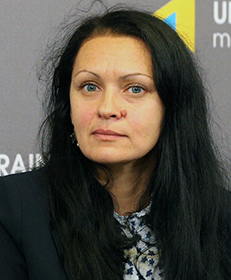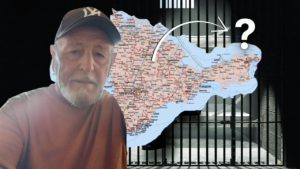In Rostov, Three Ukrainians Were Sentenced to 18 Years and More for the Attempted Assassination of Lenin, a DPR Fighter
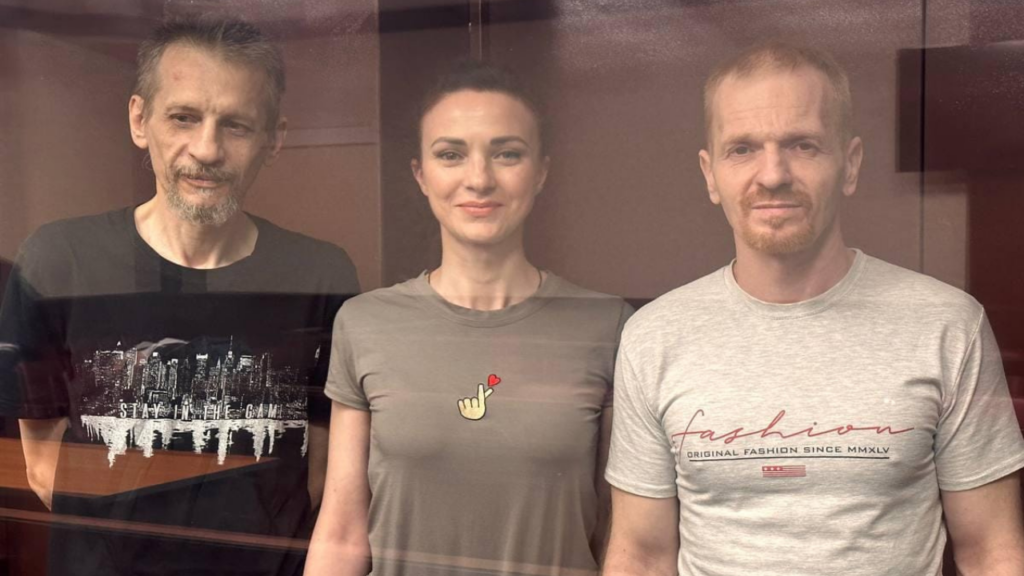
— You ask me: why did she go there? I don’t know. I can only guess that Natasha went to work; she had such an assignment.
— She went to occupied Donetsk to work?
— She talked about Mariupol. She went to Mariupol. Before that, she said, “I have a new job.” Nothing more. She returned, and then we celebrated her birthday—loudly, joyfully, in a pub. Later, we celebrated Yuliia’s birthday, Natasha’s daughter, who had just turned four. Then she had to leave again. And then she disappeared. A month, two, four… no news at all. Then we saw a video and the information: Natasha had been detained in Donetsk, and she was in a pre-trial detention center.
— Why was she detained?
— They said she, along with two men, was preparing an assassination attempt on some DPR fighter with the call sign Lenin.
— What did you think at that moment?
— Anyone could have been preparing an assassination attempt, but Natasha. My sister is a person of celebration, an artist, and a toastmaster. Her mindset is not about death—it’s about life.
This conversation between the author of the publication and Olena, Natalia Vlasova’s sister, took place in December 2024.
The 37-year-old Nataliia Vlasova and 46-year-old Viktor Shydlovskyi were detained by representatives of the pro-Russian quasi-structures of the so-called DPR on March 21, 2019, while crossing the Olenivka checkpoint. Both were traveling to the occupied Donetsk, allegedly using forged documents under the surname Petrenko. In Donetsk, their acquaintance, 47-year-old Serhii Hruzynov, was already waiting for them. The prosecution alleges that all three intended to rent housing and find employment. Whether trade was the sole reason for the three Ukrainian citizens to travel to territory not controlled by their government remains unclear even five years after the events. During the court hearing, all three stated that they had incriminated themselves under torture, confessing to crimes they had not committed.
The Case of the Six
Victor Shydlovskyi, a Kyiv resident, worked as a driver for one of the capital’s enterprises. Following the onset of Russia’s armed aggression in 2014, he was mobilized and served for a year in the Air Assault Forces of the Armed Forces of Ukraine before being demobilized.
“I was aware my husband had important matters to do, was preparing for a trip, and mentioned he would be out of reach for a while. It wasn’t the first time, so I wasn’t too worried, if not a dream: Viktor was lying on a bench in a room, saying he was exhausted. I felt like he had fallen into a trap and that someone had betrayed him,” Valentyna, Viktor’s wife, shares with MIHR.
As discovered later, at that moment, Shydlovskyi had already been brought to a secret prison on the grounds of a former plant for the production of insulation materials in Donetsk, known as the “Izolyatsia” torture facility. He was held there for about four months. So was Natalia Vlasova.
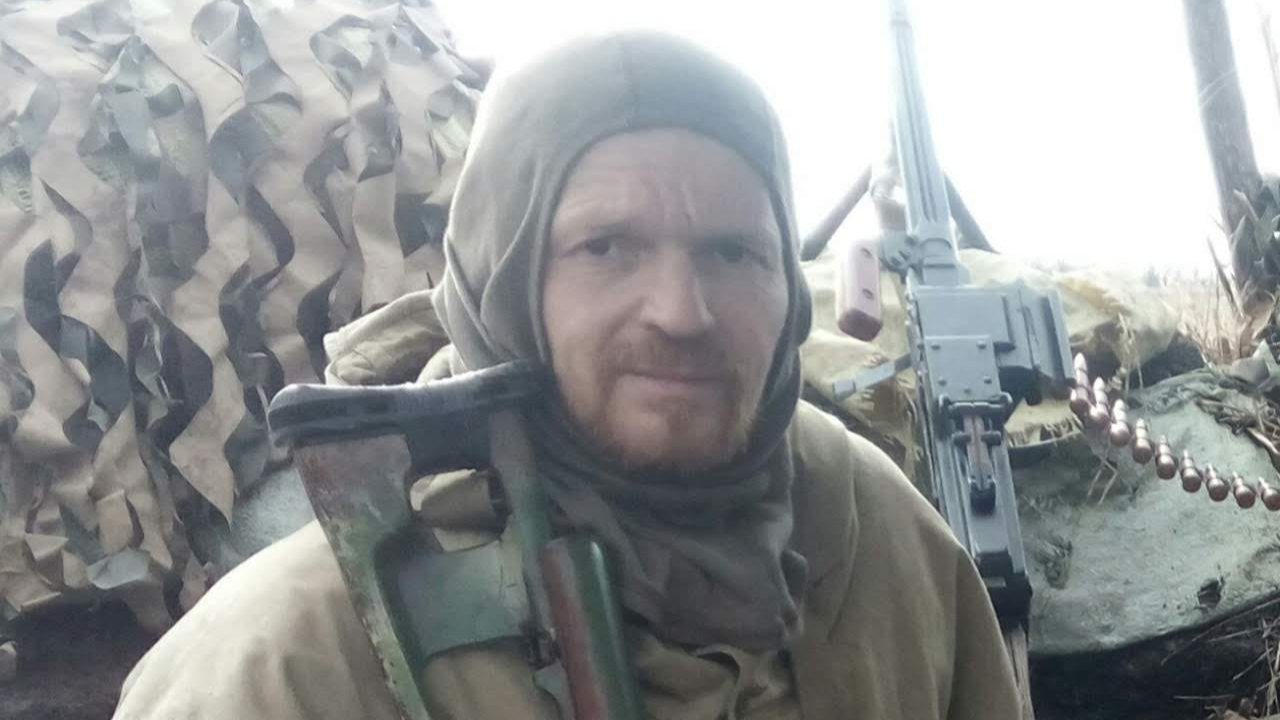
Victor Shydlovskyi during his military service. Photo provided by his wife
But Valentyna learned about all this much later.
The whereabouts of the third individual, Serhii Hruzynov—a volunteer who had assisted the military since 2014 by delivering supplies, food, batteries, and other essential equipment to the Donetsk region—remained unknown.
Eventually, Vlasova, Shydlovskyi, and Hruzynov were transferred to the Donetsk detention center. The men were placed in damp, moldy, cold basement cells at 4 Koboziev Street, where they were not allowed outside for walks. Nataliia was held in a general women’s cell with the accused of murder or drug trafficking. They were charged with attempting to assassinate Vasyl Yevdokymov, known by the call sign “Lenin,” the head of special operations forces for the so-called “Donetsk People’s Republic,” who was implicated in torture at the “Izolyatsia” prison. Ukrainian law enforcement authorities suspected him of orchestrating several high-profile assassinations, including the murder of SSU Colonel Oleksandr Kharaberiush in Mariupol and GUR Colonel Maksym Shapoval in Kyiv.
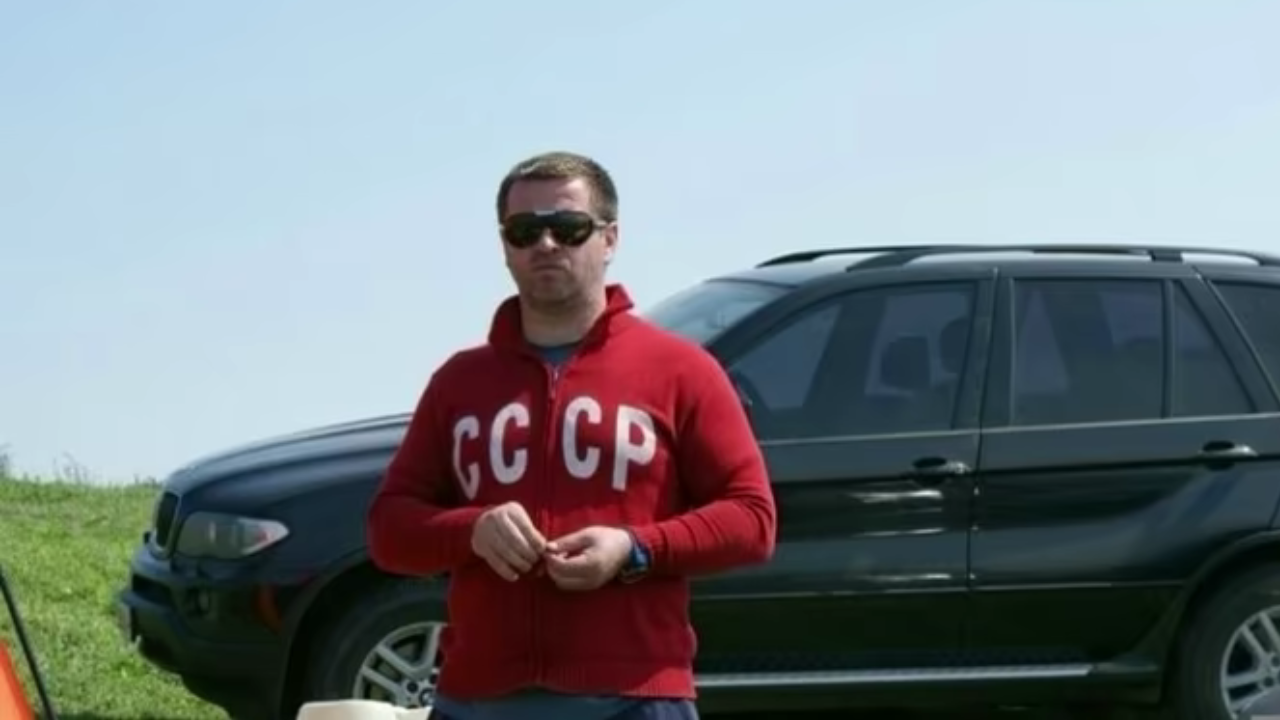
Vasyl Yevdokymov, the call sign “Lenin,” the head of special operations forces for the so-called “Donetsk People’s Republic”
Later, three more individuals—Gia Kapanadze, Maksym Vorona, and Andrii Borzunov—were added to the case. They were accused not of the assassination attempt but of carrying out the SSU orders, which, in “investigators’” opinion, was considered a lesser offense. Eventually, Kapanadze, Vorona, and Borzunov were released from the pre-trial detention center under a travel ban after accepting “documents” from the so-called “DPR” and Russian passports.
In the spring of 2023, after four years of detention in Donetsk, Shydlovskyi, Hruzynov, and Vlasova were transferred to Detention Center No. 1 in Rostov-on-Don, Russia. At the same time, the case, initially under the so-called “Supreme Court” of the “DPR,” was handed over to the Southern District Military Court of the Russian Federation.
The formal ground for the case’s transfer to Russian territory was the Russian Federal Law No. 395 “On the Application of Provisions of the Criminal and Criminal Procedure Codes of the Russian Federation in the Territories of the “DPR,” “LPR,” Zaporizhzhia, and Kherson Regions,” adopted on July 31, 2023. The transfer required only a petition from the so-called prosecutor and the alignment of the “DPR’s criminal code” articles with Russian legislation. No additional circumstances were investigated.
Hearings in Rostov
The case was brought to the Rostov court on June 20, 2023.
The trial lasted a year and a half. Vlasova, Hruzynov, and Shydlovskyi acknowledged that, following the outbreak of the war in 2014, they had been in contact with SSU representatives and had traveled to Ukrainian territories occupied by Russia.
Hruzynov testified that he had been tasked by the Ukrainian Security Service to apply for a job at a chandelier store located within the Kalininskyi Market, where he worked until his detention. Then, on Serhii’s account, he was coerced into locating and contacting a representative of the Security Service of Ukraine, engaging in negotiations, and provoking them to assign tasks. Vlasova also stated that she traveled to Donetsk to work at the chandelier store to replace Serhii. This, she explained, was the reason for her journey to Donetsk in Shydlovskyi’s company.
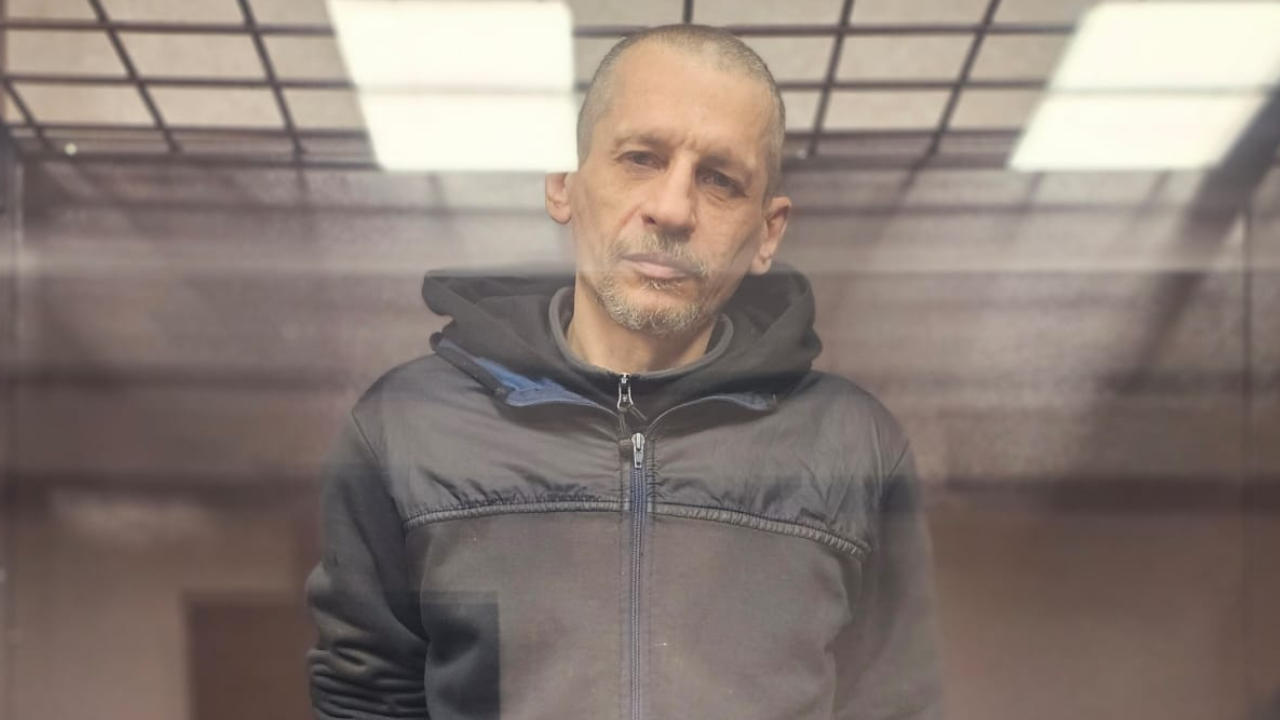
Serhii Hruzynov during the court hearing on June 17, 2024
All the defendants have consistently denied the allegations of an attempted assassination.
“Due to my personal moral convictions, I believe that no person has the right to take the life of another, and no justification can relieve the moral responsibility for murder,” Nataliia Vlasova stated during the court hearing on June 17, 2024. “It would have never crossed the minds of SSU officers to suggest such a thing to me. No one offered to train me in combat skills. In that respect, I was of no interest to the special services. The prosecutor seems to overestimate my abilities in this matter. There is also certain illogicality in the claim that I participated in an assassination attempt, abruptly ceased doing so, and then went back to Kyiv. In fact, I was acquainting myself with the store and its procurement process.”
Five of the accused, except for Kapanadze, testified about being tortured and claimed they were forced to incriminate themselves, signing blank sheets of paper provided by the investigators.
“When Nataliia was in the Donetsk detention center, she had a phone, and we stayed in touch. I tried to call every day,” Nataliia Vlasova’s sister, Olena, recalls. “Sometimes, she would disappear for 3–4 days. When I asked what happened, she would say she was sick and her phone was seized. I had no idea about the horrors she endured. She said they forced her to sign blank sheets — ‘confessions.’”
Olena only learned about the torture just recently.
Torture: Forced Self-Incrimination
During the court hearing on June 17, 2024, Nataliia Vlasova stated, “After my detention, I was immediately taken somewhere with a bag over my head, beaten, and threatened to have my fingers cut off.”
The woman then provided a detailed account of the torture she experienced at the “Izolyatsia” detention facility in Donetsk.
“At night, they brought me to “Izolyatsia.” This place was called the factory of death. Its chief was Yevdokymov. At one point, I even begged them to shoot me during an escape attempt, but no—Yevdokymov would say I had to suffer. For a long time, I didn’t know who those people were or where I was; to me, they were ruthless bandits. These bandits have an obvious pathology—they are sadists in the clinical sense of the word,” Nataliia Vlasova testified in Rostov.
She added, “They would strip me, tie me up with tape, pour water over me, and apply electric shocks. If I didn’t scream loudly enough, they increased the voltage, and the shocks became more intense. They wanted a reaction—I didn’t realize this at first. When I screamed loudly enough, I could hear their satisfied voices. There was even a doctor present during the torture. When I lost consciousness, he revived me with ammonia. The next time, they hadn’t even managed to undress me or lay me on the table before he rushed to shove an ammonia-soaked cotton ball up my nose. It was impossible to breathe.”

Nataliia Vlasova during the court hearing on June 17, 2024
The women who were detained in “Izolyatsia” alongside Nataliia Vlasova and released in December 2019 confirmed to MIHR the facts of her torture.
One of the women, Olena Zavalna, recalls, “Nataliia was held in “Izolyatsia,” and every day they would take her and abuse her, making her go to the tapik [tapik, also TA-57, a Soviet field telephone of universal type with an induction call system, produced since 1957 — MIHR], to have her teeth filed. Lenin himself would come to her. He sat at the table in the basement and said, “You beast, why did you come here? To kill me? We’ll see who will kill whom here.” I thought, “Oh, my God, what a nightmare! How quickly I got out of there.”
Another woman, Maryna Chuikova, saw Vlasova Donetsk detention facility, where she was transferred four months after her arrest in the summer of 2019. She recounts, “All the women who came from “Izolyatsia” to the detention center showed signs of physical abuse. One day, a girl was thrown into our cell. Her teeth had been sawed off, and her legs were severely swollen. She had kidney failure, a concussion, bruises, and a broken nose. It was unbearable to look at her. It’s even frightening to imagine the physical violence she endured. She said 15 men were brought to her to do whatever they wanted.”
Viktor Shydlovskyi also reported torture in “Izolyatsia”.
“From the moment of my detention, in fact, abduction, I was subjected to prohibited interrogation methods. I was deprived of the right to defense, had no lawyer, no opportunity to contact my family,” he claimed on August 27, 2024.
—The torture took place in a specially equipped room, using electric shocks and beatings with plastic pipes and water bottles. I was hung by my handcuffs and continued to be beaten in that position. They would handcuff me to the bars, leaving me unable to even sit on the concrete. As a result of these and other forms of torture, I confessed not only to what I had actually done but also, to a large extent, to things I had not been involved in.
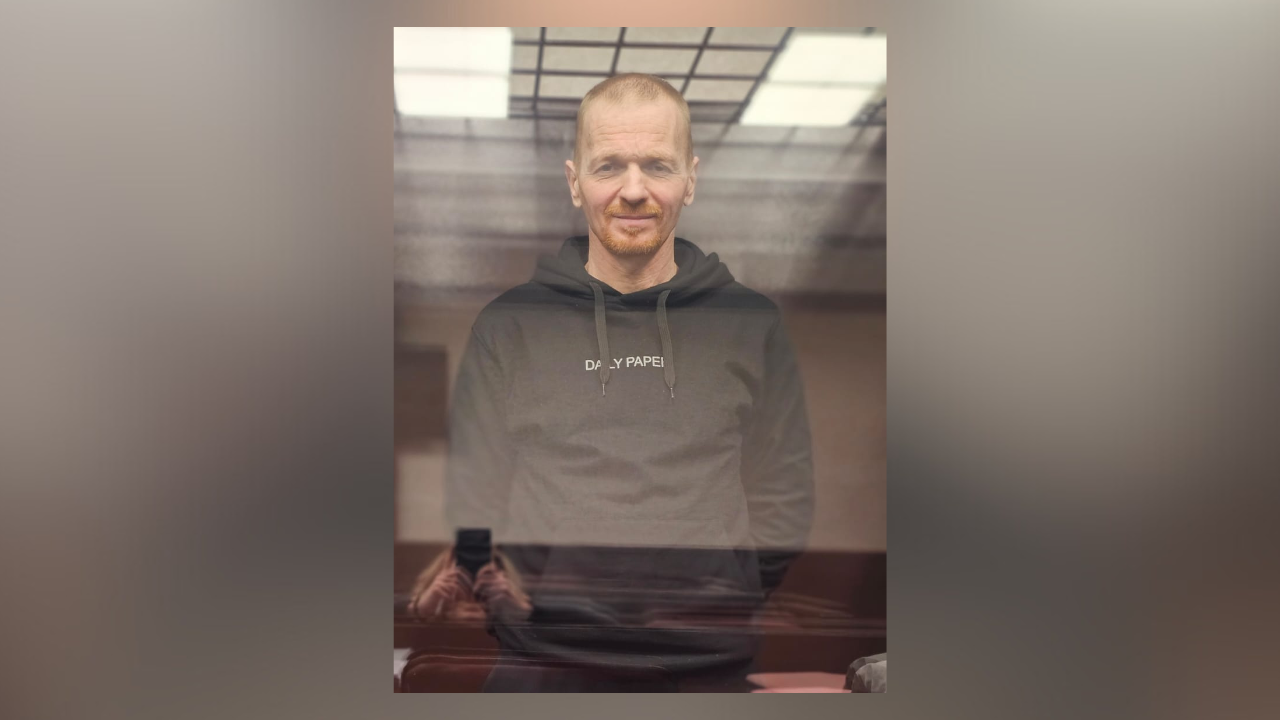
Viktor Shydlovskyi during the court hearing on June 17, 2024
Serhii Hruzynov recalled that after the torture in February 2019, he spent about a month at the Donetsk Regional Clinical Hospital named after M. I. Kalinin.
“The stories about the detention of Vlasova, Shydlovskyi, and Hruzynov were aired on a Federal Russian TV channel, and it was obvious that they had been filmed after the torture. In the footage, it’s visible that Vitia had a bag over his head and signs of beating,” Valentyna Shydlovska adds. “These materials were even included in the so-called criminal case, and based on them, the defense requested not to consider the testimonies obtained during the so-called investigation, but the court rejected it.”
Positions in Court
During the trial, Nataliia Vlasova and Serhii Hruzynov communicated with the prosecutor and judge, trying to explain their position. After Vlasova detailed the torture she had endured, she began answering questions about her testimony during the so-called pre-trial investigation. The same approach was taken by Hruzynov. Through this communication, the prosecution attempted to validate the information obtained during interrogations under torture and to undermine the testimony about the torture voiced in court.
Shydlovskyi refused to be questioned in court. He stated that the “DPR” was formed illegally and contrary to the current norms of Ukrainian law. He claimed it was not illegal to communicate with the SSU on the territory of their state. He also denied their intention to commit any sabotage activities.
“I, Shydlovskyi Viktor Viacheslavovych, a citizen of Ukraine, consider myself an illegally detained person, abducted on the territory of Ukraine and forcibly held on the territory of the Russian Federation. I declare that I have not committed any illegal actions against the Russian Federation,” Viktor Shydlovskyi’s wife, Valentyna, quotes her husband’s last words in court.
— There has been a substitution of concepts and a distortion of reality between my actions’ interpretation and the validity of the articles incriminated against me. The accusations are based on falsifications and conjecture. At the same time, no charges have been brought against me for committing illegal actions against the Russian Federation but rather against an entity that was illegal and unrecognized at the time, even by Russia itself and the civilized world, which is still considered a terrorist and separatist formation — the so-called “DPR.”
This territory was recognized even by Russian law as part of Ukraine, as confirmed by the Minsk Agreements, as well as numerous statements made at the time by high-ranking Russian officials, including the President of the Russian Federation, emphasizing respect for Ukraine’s sovereignty and non-interference in its internal affairs. Therefore, all structures of the so-called “DPR” could not be considered legitimate or referenced in a judicial process.
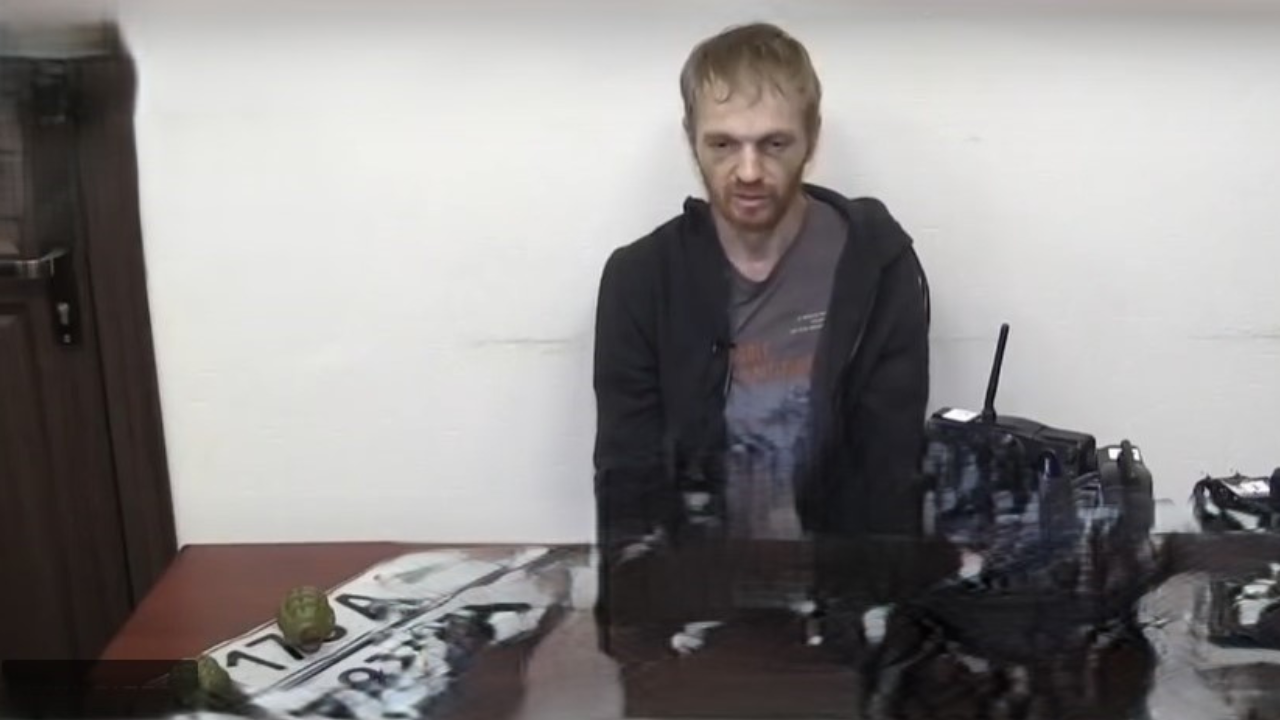
Shydlovskyi, straight after his detention
On December 24, 2024, Judge Oleh Cherepov of the Southern District Military Court delivered the verdict: Viktor Shydlovskyi was sentenced to 22 years of imprisonment, while Serhii Hruzynov and Nataliia Vlasova received 20 and 18 years, respectively. All three were found guilty of participating in a terrorist organization (Part 2 of Article 205.4 of the Russian Criminal Code) and preparing an assassination attempt on Yevdokymov.
The trial lasted from June 2023 and involved 40 sessions.
“Victor chose a bold defense strategy. Perhaps that’s why he received the longest sentence of all — 22 years,” Valentyna Shydlovska explains. “He decided not to answer the prosecutor’s and judge’s questions but only to express his stance on the charges, meaning he didn’t discuss the actual actions. His position is simple and clear, written on a single sheet of paper: Victor acted on the territory of his own state, and all these events have no connection to the Russian Federation, meaning this court has no authority to judge him. All 16 volumes of the case are nothing but wastepaper. Furthermore, during the trial, the man declared that the RF would have to account in an international court or tribunal for crimes against Ukrainian citizens.”
“Viktor Shydlovskyi’s words are extraordinarily eloquent. He was detained and arrested by unidentified individuals acting on behalf of the Russian Federation’s fabricated and legally non-existent “DPR.” Later, Russia officially recognized the actions of the so-called “DPR” and now continues to consider the accusations brought there,” Andrii Yakovliev, attorney, managing partner at AO “Umbrella,” and an expert on international humanitarian law at the MIHR, explains. “This means that Russia is attempting to convince the world of the existence of the so-called “DPR,” although, in fact, at the latest since May 2014, the Russian Federation carried out a military occupation of parts of the Donetsk region and established its own administration in the occupied territory, which operated, so to speak, under the guise of not acting on behalf of Russia but as a fabricated political entity.”
The lawyer adds that this case proves that it was Russia that carried out the detention, subjected people to torture, and, contrary to its international obligations concerning the occupied territories, did not apply international law there. That is why the latter so easily “picked up” the so-called “DPR” cases and continued the investigation without starting with the verification.
The surname of the “victim,” Vasyl Yevdokymov, allegedly supposed to be eliminated by Hruzynov, Shydlovskyi, and Vlasova, was mentioned during the trial, but Lenin was not summoned for interrogation. The defense of the three believes that the prosecution abandoned this main narrative line to focus on the articles related to terrorism and weapon possession.
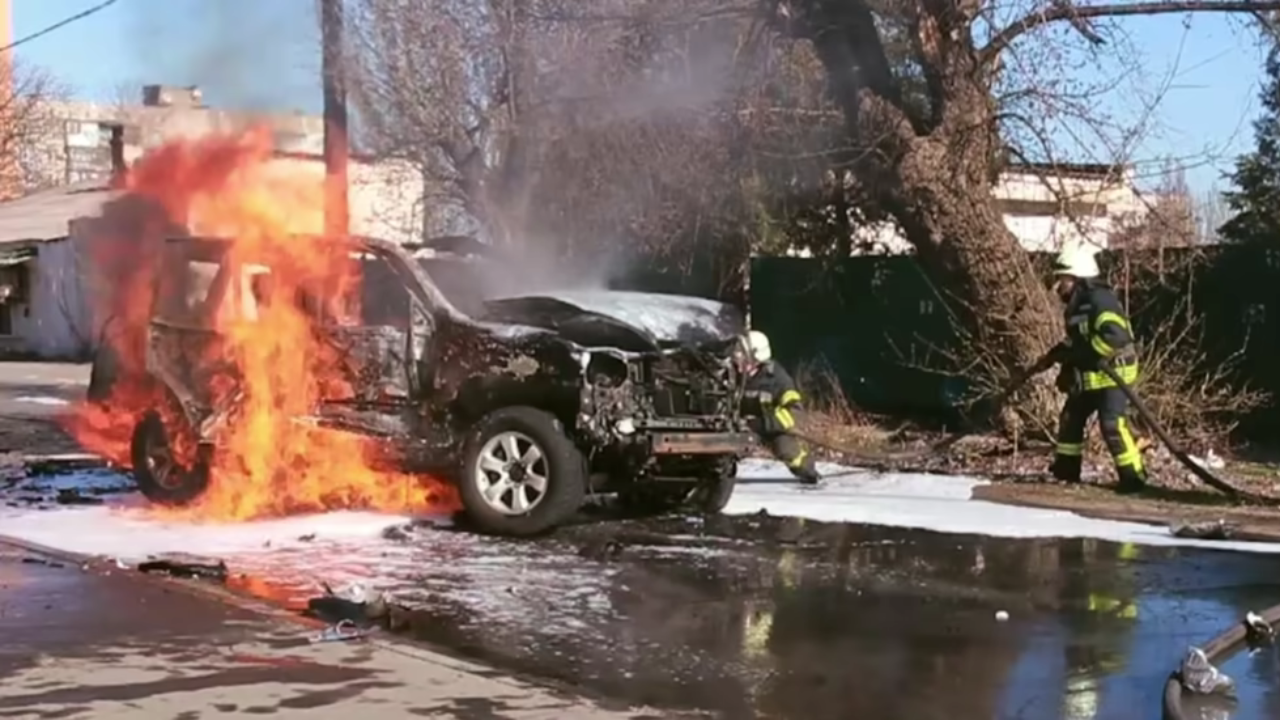
The Security Service of Ukraine (SSU) believes that the so-called “Center for Special Operations,” which operates in the occupied territories, stands behind the most high-profile murders of officials in Ukraine. The “leader” of this “center” is Vasyl Yevdokymov
The defense of the Ukrainians is currently preparing an appeal. However, they do not expect a positive response from the second instance. At the same time, the lawyers hope to at least consolidate the defendants’ position and record procedural violations. While the proceedings are ongoing, Shydlovskyi, Vlasova, and Hruzynov will remain in Rostov-on-Don. Their fate is uncertain: if Ukraine does not manage to secure their return through an exchange or unconditional repatriation, the Russian system will send them to correctional colonies to serve their sentences. After the verdicts, Ukrainians are typically sent from Rostov to the Krasnoyarsk Territory, Ulyanovsk, Saratov Regions, or Yakutia.
“Viktor hopes for an exchange: in his letters, he writes that he does not really hope that anyone intends to bring them back, even though they worked behind enemy lines. He believes only in a miracle. Almost six years have passed since the day of his detention; it’s enough time to lose faith. When the women were returned in October 2022 and then in September 2024, but Natasha was not among them, she cried a lot and was desperate,” Valentyna, Shydlovskyi’s wife, recounts. She adds, “I’m proud of my husband for not losing his courage, for not being afraid to assert his rights in court.”
From the Perspective of International Law
A preliminary analysis of the evidence and facts collected by the MIHR indicates numerous violations against Ukrainians in the Russian court. Lawyer Andrii Yakovliev, who analyzed the process, highlights these issues.
Firstly, the occupying authorities have criminalized actions that, under international law, cannot be considered crimes in the occupied Ukrainian territories. In doing so, the Russian Federation is significantly exceeding its authority.
“The charges under Article 205.3 of the Criminal Code of the Russian Federation (‘Preparation for the commission of a terrorist act’) and Part 2 of Article 205.4 (‘Participation in a terrorist community’) are groundless, as the convicted individuals did not engage in terrorist activities or belong to any terrorist community,” the lawyer explains. “The charges under Article 317 of the Criminal Code of the Russian Federation (‘Preparation for an attempt on the life of law enforcement officers or military personnel’) are also baseless, as Lenin, the alleged target of the alleged attack, was neither a law enforcement officer nor a member of the military. The accusations under Part 3 of Article 222 of the Criminal Code (‘Illegal acquisition, sale, storage, and carrying of firearms and ammunition committed by an organized group’) and Part 3 of Article 327 (‘Acquisition, sale, storage, and carrying of firearms and ammunition committed by an organized group’) also fail to hold up. Such accusations on occupied territory can only be brought by Ukrainian authorities.”
Andrii Yakovliev points out the absurdity of the charge under Part 3 of Article 322 of the Criminal Code of the Russian Federation (‘Illegal crossing of the state border of the Russian Federation’), as the defendants did not cross the Russian border—they were on Ukrainian territory.
Therefore, Russia, which has exercised and still exercises effective control over the occupied territories, subjected Nataliia Vlasova, Viktor Shydlovskyi, and Serhii Hruzinov to criminal prosecution unlawfully.
Secondly, the Russian authorities detained and applied prolonged detention beyond reasonable time limits to Shydlovskyi, Hruzynov, and Vlasova, who have been in custody since 2019 and whose detention has not been judicially reviewed since then.
“Everything happened as if they had already been found guilty, and the court procedure was just a formality to implement the long-standing guilty verdict,” the International Humanitarian Law expert notes.
Thirdly, the detainees were initially denied even minimal protection and could not rely on the assistance of independent lawyers.
Fourthly, the Russian authorities violated their international obligations not to deport residents of the occupied territories to their own territory, which constitutes a war crime.
Finally, the most significant point is that torture was applied in this case, as Ukrainian citizens testified in the Rostov court. However, Judge Oleh Cherepov (formerly an investigator with the Investigative Committee of the Russian Federation) did not consider these facts.
“Even if we assume that the defendants were engaged in hostile activities from the perspective of the occupying authorities, for which the Geneva Conventions allow detention, Russia distorts the rules and abuses the advantages they provide,” Andrii Yakovliev summarizes. “Russia must either fulfill its obligations under the Fourth Geneva Convention or stop convicting Ukrainian citizens. When the occupying power detains individuals to eliminate a hidden threat, the punishment should be aimed at addressing this issue, not be a manifestation of inhuman treatment.”
Overall, in this case, the Russian Federation has committed and continues to commit several crimes. These include unlawful detention, torture, deportation, and deprivation of the right to a fair trial. These actions are part of a widespread policy of persecuting the civilian population in the occupied territories, which should be classified as a crime against humanity.
This article was published with the support of the European Endowment for Democracy (EED). Its content does not necessarily reflect the official position of the EED. The information or views expressed herein are solely the responsibility of its authors.


